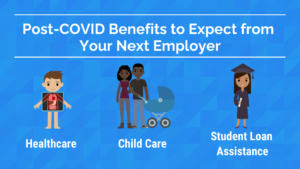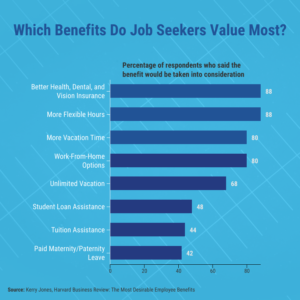

Asking your boss for a raise can be one of the most anxiety-inducing things you ever do at your job. Because of how nerve-wracking it is, many people wait too long to get the raise they deserve. Too many people fail to understand that there’s no reason to be anxious about asking for a raise, especially if you’ve been working hard and helping the company grow. However, there are some ways to ask for a raise that are better than others and have a higher likelihood of getting you what you deserve.
Even if your manager praises you daily, you’ll still need to give them a reason why you deserve more money, and you should be prepared to negotiate your rate. Here’s tips on how to ask your boss for a raise.
Collect Feedback
Your resume has changed since you applied for your current position. As you’ve worked for the company many years, you’ve picked up new skills and found new ways to help the business expand. Whether you have quarterly or annual performance reviews, the odds are you’ve received positive feedback since your last review. Keep all the praise you receive organized, so you can use it to build your case for why you deserve a raise.
You should also give yourself an evaluation. Make a list of all you’ve accomplished for the business. If anything goes above and beyond your job duties, make a note of what it is and how often you do it. You should also add any long hours you’ve worked to the list and include everything from your managers’ reviews to coworkers’ feedback.
Have Data Prepared
People respond best to facts and data. If you want a raise, you’ll need to bring numbers to the table. Now that you have a list of all of your accomplishments, try to add details by adding numbers when possible. You can even use invoices to track your pay stubs.
For example, if your department benefitted from your work, try to include how they benefited, such as an increased rate of productivity or time and cost savings. Be as specific as possible. If you increased sales by a certain percentage or led a team who did, add that to your list. Bringing details to the conversation gives proof as to why you deserve a bump in pay.
Consider the Future
Employees ask for raises because they have a track record of working hard and succeeding. However, managers and bosses need to know you’re looking for an opportunity to grow within the company, and not just for the money. When you ask for a raise, consider talking about next steps, more responsibility, or what is necessary to rise to the next level. You can also come prepared with a detailed explanation of where you see yourself within the company and where you want to go in the future.
Check the Handbook
Knowing when to ask for a raise can help you be successful in getting gone. For example, an upcoming performance review allow you to advocate for yourself to HR or the business owner so you can get a raise exactly during a time when the company is considering your future with them.
Your employee handbook will give you an idea about how raises and promotions are handled within your company. While these career milestones can happen at any time, they typically happen during performance reviews, which allow you to prepare for the right moment to ask for a raise.
Give Them a Number
Asking for a raise and not knowing how much you want or need to stay with the company can be detrimental to your cause. If you want a raise, you should have a number in mind—determining the amount and sharing it with your boss is the reason why many people have anxiety in these situations. However, if you have done your research and know your value, as well as your contributions to the company, you feel confident in what you think is fair, and, you’ll have a higher chance of success.
Don’t forget, your boss may try to negotiate. So be prepared to compromise. Consider other non-monetary perks, such as vacation, education benefits, etc. air rate would be by 10%.
Book a Time
This is not a discussion that you want to have in the hallway. Book a time with them when you know they’ll have nothing else on their mind. Consider the company schedule, as well as their responsibilities.
Practice
Asking for a raise can be intimidating, but the worst thing that can happen is being turned down. Most people will not get fired because they want more money. HR professionals expect that almost all employees will eventually ask for a raise or a promotion to improve their work/life balance.
By practicing with your friends and family, you can make the ordeal less stressful. You’ll be able to go into the meeting anticipating what your boss will ask or how they’ll reply to certain parts of the conversation.
Matt Casadona has a Bachelor of Science in Business Administration, with a concentration in Marketing and a minor in Psychology. Matt is passionate about marketing and business strategy and enjoys San Diego life, traveling, and music.

















